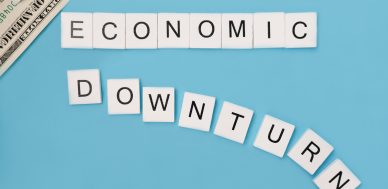Could U.S. Economy Go Far Without Its Consumers? A Recession Looms
Mark my words: the U.S. economy won’t go far if American consumers are struggling financially. This is what’s happening at the moment. A recession could be looming.
Mainstream economists have been touting the idea that consumers are in good shape. The Federal Reserve has also talked about it. Mind you, this noise is being created at a time when interest rates are going higher, inflation is at a multi-decade high, and asset prices are falling.
If you’re an investor and trying to figure out where the U.S. economy is headed, here’s what you need to know: it matters very little what financial shape consumers were in a year ago. You need to look at how their balance sheets could be in the next 12 months or so. That’s because the stock market is forward-looking and cares very little about what has already happened.
3 Charts Investors Shouldn’t Overlook
Let’s talk basics first: personal net worth is the difference between assets minus liabilities. If American consumers’ net worth increases, they’re likely to spend money. If their net worth drops, they’re likely to pull back their spending.
Right now, the asset side of the net-worth equation is being questioned. Look at the following chart. It plots what percentage of stocks Americans own relative to their overall assets.
(Source: “Households and Nonprofit Organizations; Directly and Indirectly Held Corporate Equities as a Percentage of Financial Assets; Assets, Level,” Federal Reserve Bank of St. Louis. Last accessed May 20, 2022.)
At the end of the fourth quarter of 2021, 41% of Americans’ assets were tied to the stock market—a record-high percentage. Unfortunately, the stock market has had a rough few months. Major indices are down significantly, and it looks like they could fall a bit more.
Now look at this chart. It plots the amount of equity American homeowners have in their houses. Thanks to the soaring housing market in 2020 and 2021, their home equity surged above $26.3 trillion by the end of 2021.
(Source: “Households; Owners’ Equity in Real Estate, Level,” Federal Reserve Bank of St. Louis, last accessed May 20, 2022.)
Don’t forget, interest rates and the housing market are inversely correlated. As interest rates increase, the housing market faces headwinds. The Federal Reserve has been raising interest rates recently and has made it very clear that it will continue to raise rates for the foreseeable future. If home prices decline, what will happen to all this equity? What will happen to those who bought homes within the last two years and only saw their home values surge?
See this final chart below. It plots the U.S. personal saving rate, which is the percentage of disposable income Americans are saving. Currently, the personal saving rate in America stands at 6.2%, which is the lowest it has been since around 2014.
(Source: “Personal Saving Rate,” Federal Reserve Bank of St. Louis, last accessed May 20, 2022.)
And don’t ignore inflation. Higher prices could be forcing Americans to save less. It’s possible that this will be the case in the next few quarters, as it could take a long time to tame inflation. The Federal Reserve has just started to fight inflation, and usually the Fed’s policies don’t have fruitful results for 12 to 18 months.
U.S. Economic Outlook Is Dire
Dear reader, contrary to popular belief, American consumers are in horrible shape financially, and this is nothing but bad news for the U.S. economy. Consumption in the U.S. accounts for 70% of the overall gross domestic product (GDP), and consumer spending is a huge chunk of overall consumption.
If consumer spending falls, the U.S. economy falls.
Therefore, I think a recession is looming. It’s not really a question of “if” any longer; rather, it’s a question of “when.” In the first quarter of 2022, the U.S. economy declined. Could the economy enter an official recession in the second quarter? It’s possible. I think the second half of 2022 and early 2023 could be more miserable for the U.S. economy than the first half of 2022.
Here’s what I’m also questioning: once a recession becomes a reality, what will the Federal Reserve do? Will we witness more money-printing than in the last crisis, and interest rates getting slashed to below zero?
Here’s a warning.
The stock market is selling off a little as investors start to fear a slowdown of the U.S. economy. Once the data starts to show horrible conditions in the U.S. economy, investors could sell off many more shares. The bottom might not happen until inflation gets tamed, the Federal Reserve changes its high-interest-rate rhetoric, sentiment becomes severely pessimistic, and there’s an abundance of uncertainty.
